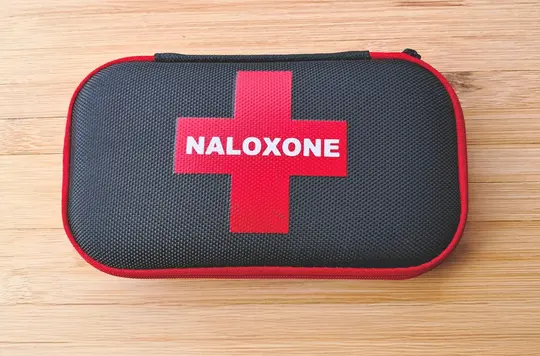8 November 2025
Why we're calling for a compassionate response to drug-linked deaths
Chris Hartley

As the number of drug-linked deaths increases, Chris Hartley calls us to join the Army’s campaign for a compassionate response.
Addiction is complex and could affect any one of us. Our society often demonises people with drug addictions, viewing addiction as a moral failure or a lifestyle choice, while ignoring the fact that many people struggling with addiction are simply trying to cope with unimaginable trauma and suffering. Many individuals who sleep on the street use drugs or alcohol because it is the only way they can sleep, given the constant fear they must live with.
It is not for us to judge others, but to offer our hand in love and support. We should consider how Jesus lived. He rejected many of the social norms of his time that excluded people. He lived out his teachings by welcoming and comforting those who were outcast. He taught us that everyone is valued and loved by God and that, through him, everyone can find eternal life and freedom from suffering.
In Matthew 25:40, Jesus says: ‘Truly I tell you, whatever you did for one of the least of these brothers and sisters of mine, you did for me.’ For 160 years, The Salvation Army has supported people struggling with addiction for that reason – this message of support and compassion is at the heart of our faith. The Army’s Addictions Department and Core Recovery churches are two ways in which we ensure we are meeting people where they are and supporting them on their road to recovery.
Every life has value and is loved by God. As such, the growing number of individuals dying as a result of drugs is deeply concerning. Figures from governments show that deaths have increased by 66 per cent in the last decade. This means that 18 people are dying every day.
Every life lost is a tragedy – they were someone’s family or friend. The rising number of drug-linked deaths is a growing crisis in our country. And a key factor exacerbating this crisis is the increase in synthetic opioids, such as fentanyl, which are significantly stronger than drugs such as heroin, but much cheaper to produce.
Synthetic opioids are now often mixed with other drugs, increasing the risk of an overdose, particularly if the individual is unaware of this mixture. Studies have shown that a very small amount of fentanyl can trigger an overdose.
The Salvation Army is calling on the UK government to declare this crisis a public health emergency. We hope that, in so doing, the human lives being lost will be put at the centre of the response – rather than judgement, we need action. Rather than exclusion, we need compassion.
As Jesus taught us, we live our faith through sharing his love with those society excludes. People are dying because they are unable to get the support they need. This must end.
How can you help? We have created a petition calling on the UK government to tackle this growing crisis with compassion. You can add your name to it at tsa.link/addiction-petition. At the end of November, we will deliver it to No 10 Downing Street. We hope that the prime minister will recognise the need for action.
We will also continue to campaign to tackle the stigma around addiction so that more people can get the support they need. If you’d like to find out more about this campaign, please contact us at countmein@salvationarmy.org.uk.
Reflect and respond
- Read Matthew 25:40 in different translations and compare the wording. What do you think is meant by the words ‘the least’?
Written by

Chris Hartley
Public Affairs Officer, THQ











